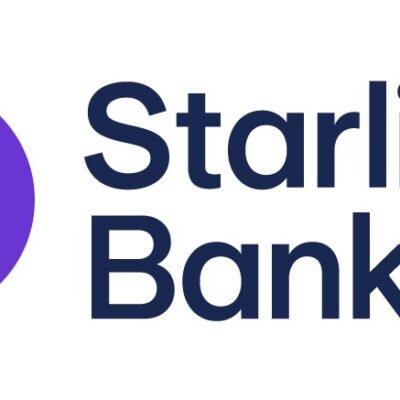Borrower circumstances are becoming increasingly complex, and innovation in the mortgage market means people no longer need to consider a narrow set of options to finance their property purchase. Alternative financing solutions to access funds have become a growing part of the market that forward-thinking brokers can’t afford to overlook.
In this article, we’ll take a look at what alternative mortgage financing options are, their pros and cons, and what brokers can do to advise on this financing.
What is alternative mortgage financing?
Alternative mortgage funding refers to various types of loans that differ from the traditional bank loan route. With many first-time buyers moving back home to save for their property purchase, alternative mortgage funding allows would-be homeowners to break down these traditional financial barriers.

How to get your first-time buyer clients mortgage ready
Sponsored by Halifax Intermediaries
Why is alternative mortgage financing important for brokers?
For brokers and lenders, diversifying into alternative mortgage funding can be incredibly beneficial. Not only does it open the door to a wider pool of clients, but it also creates opportunities for increased revenue and long-term client retention. By offering a broader range of products, you can meet clients’ needs holistically and differentiate your brokerage in a competitive market, helping buyers get on to the property ladder.
Alternative mortgage options
There are several different alternative mortgage lender options, some of which we’ll run through below.
This non-traditional method involves individuals renting a property with the plan to buy it in the future. The rent paid will go towards the final purchase price.
Peer-to-peer lending refers to online lending platforms that bring together borrowers and lenders, meaning that those seeking investments can cut out the traditional bank. While there are drawbacks to peer-to-peer lending, this type of alternative mortgage funding can be quite quick and convenient for those involved.
We advise brokers to undergo continuing professional development (CPD) and training offered by specialist lenders.
This short-term alternative mortgage option helps fill funding shortfalls. Bridging loans can be particularly helpful in situations where a buyer plans to purchase a new property before selling their existing one.
Bridging is usually a case-by-case approach, so working alongside specialist lenders or packagers can help brokers deliver solutions without taking on regulatory or operational risk.
If a mortgage is already in place, a second charge can help borrowers convert equity into funds for a new investment. This provides quick access to cash, but borrowers will need to manage two areas of repayment.
Brokers can advise on second charges with the right Level 3 Certificate in Mortgage Advice and Practice (CeMAP) as a minimum.
Later life lending, including equity release, is becoming an increasingly popular solution for those seeking to unlock value in their existing property. Lifetime mortgages enable borrowers to access tax-free cash with no repayments due until they pass away or move into long-term care. Offering equity release can help diversify you as a broker, as well as fund clients’ lifestyle needs.
To advise on equity release, brokers require a Certificate in Regulated Equity Release, otherwise known as a CeRER qualification.
For those seeking mortgage products that align with their religious beliefs, faith-based lending options, such as Sharia-compliant mortgages and Heter Iska, are structured to avoid interest-based lending and provide finance centred on particular values, such as not charging interest. Some use models in which the bank and the buyer co-own the property, allowing the buyer to gradually buy the bank’s shares.
Specific permissions may be required to contract faith-based lending, such as Sharia-compliant finance for house purchases. In some cases, advisers can use referrals or may not need special permissions, but they must check with the respective lender.
While not strictly an alternative mortgage, shared ownership has grown significantly in popularity and continues to offer a pathway to homeownership for those on moderate incomes. It enables aspiring homeowners to buy a share of a property and pay rent on the remaining share. This allows buyers to purchase more shares over time as their financial situation improves, making the cost of a full home more manageable.
Given the rising demand for affordable housing, brokers should be well-versed in shared ownership schemes. While shared ownership costs are generally low, it’s also worth being mindful of service charges and other related costs associated with this funding method.
Why is alternative mortgage funding becoming more popular?
When advising on alternative mortgage funding, it’s a sensible idea to weigh up the benefits and drawbacks of doing so. This will ensure you’re always keeping your client informed about their decision.
One of the best things about lenders that provide alternative mortgage options is their no-nonsense approach. Alternative mortgage lenders typically utilise accessible digital tools to streamline the entire process.
While traditional mortgages often come with inflexible terms, alternative mortgage lending options are typically more accessible, with underwriters considering applications on a case-by-case basis and acknowledging a wider set of circumstances to find a solution that works in the best interest of the borrower.
However, there are some things to consider, such as the fact that alternative mortgage lenders often offer higher interest rates and shorter terms compared to traditional lenders. Before jumping into a loan, borrowers need to ensure they can afford the overall capital costs. Furthermore, remind the borrower that when considering costs, some types of funding may not assist them in building a credit score.
Some alternative mortgage financing options are limited in availability or have specific eligibility criteria, which means they may not be accessible to everyone.
As alternative mortgage funding isn’t the norm, extensive research is required before applying. Help the borrower compare different lending rates and costs of all options, as well as double-checking that the chosen loan type aligns with their needs.
Advising on alternative mortgage lending
As a broker, you’ll know there are plenty of alternative mortgage financing solutions out there, but options and borrower requirements are continuously changing. So, how can you stay ahead and offer the best mortgage advice?
- Upskill your brokerage team
If you envision bringing these services in-house, the brokerage team needs to be well-educated in alternative mortgage lending. Invest in industry-recognised qualifications to help your team of brokers broaden their scope.
- Treat every client individually
When advising a client on alternative mortgage lending options, your brokerage needs to take the time to understand each individual client’s case. Alternative finance tends to serve complex cases, which means you need to assess income, assets, goals, and mortgage options to offer the most well-suited advice possible.
Putting qualifications and certifications aside, staying on top of the latest market trends is essential for any brokerage that wants to provide the best advice on alternative mortgage lending. Rates and offerings are constantly changing, so your team must be highly adaptable. Join webinars, read up on industry news, and participate in CPD events to stay ahead.
When offering advice, you need to be as transparent as possible. Alternative mortgage financing can involve shorter terms, higher rates, and, in some cases, additional fees, which the client needs to be aware of. This is especially true for bridging loans and equity release options.
- Build a network of lenders
Developing a network of trusted, specialist lenders, master brokers, and packagers can provide your firm with access to the most competitive rates, expedited application processing, and expert support on complex cases, all of which can drive client satisfaction.
If you decide to delegate the task of advising on alternative mortgage products, utilise the skilled experts available in your network. Referring isn’t a weakness – it can still help you gain revenue while ensuring the client obtains the assistance they need. For example, when considering bridging loans, remember to partner with Financial Conduct Authority (FCA)-regulated bridging lenders that have strong reputations to ensure clear underwriting and smooth completions.
Rounding up on alternative mortgage financing
We hope this article has provided you with a comprehensive understanding of how to offer advice on alternative mortgage financing options. Brokers who stay current with alternative mortgage finance education stand to gain significantly in terms of income, retention, and long-term business value. Borrower needs are becoming increasingly complex, which means your brokerage must step up and offer tailored solutions to remain competitive.
To stay up to date with the latest news, we encourage you to explore the rest of our blog. We’re here to guide you through industry insights, from news on first-time buyer mortgage repayments to the mortgage lending forecast.





